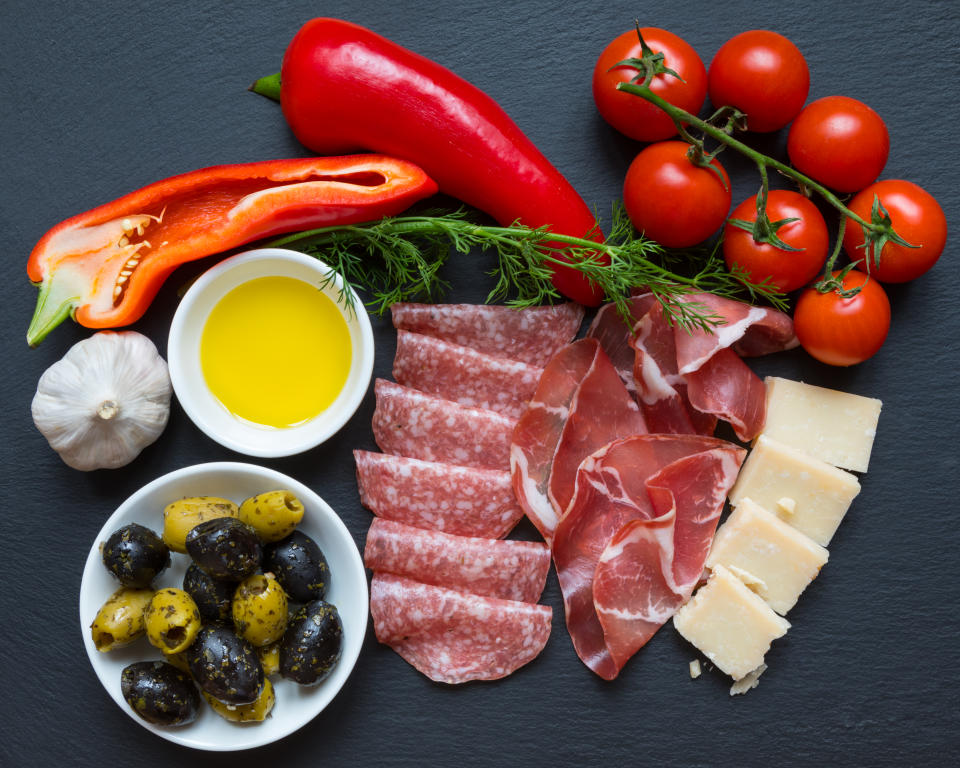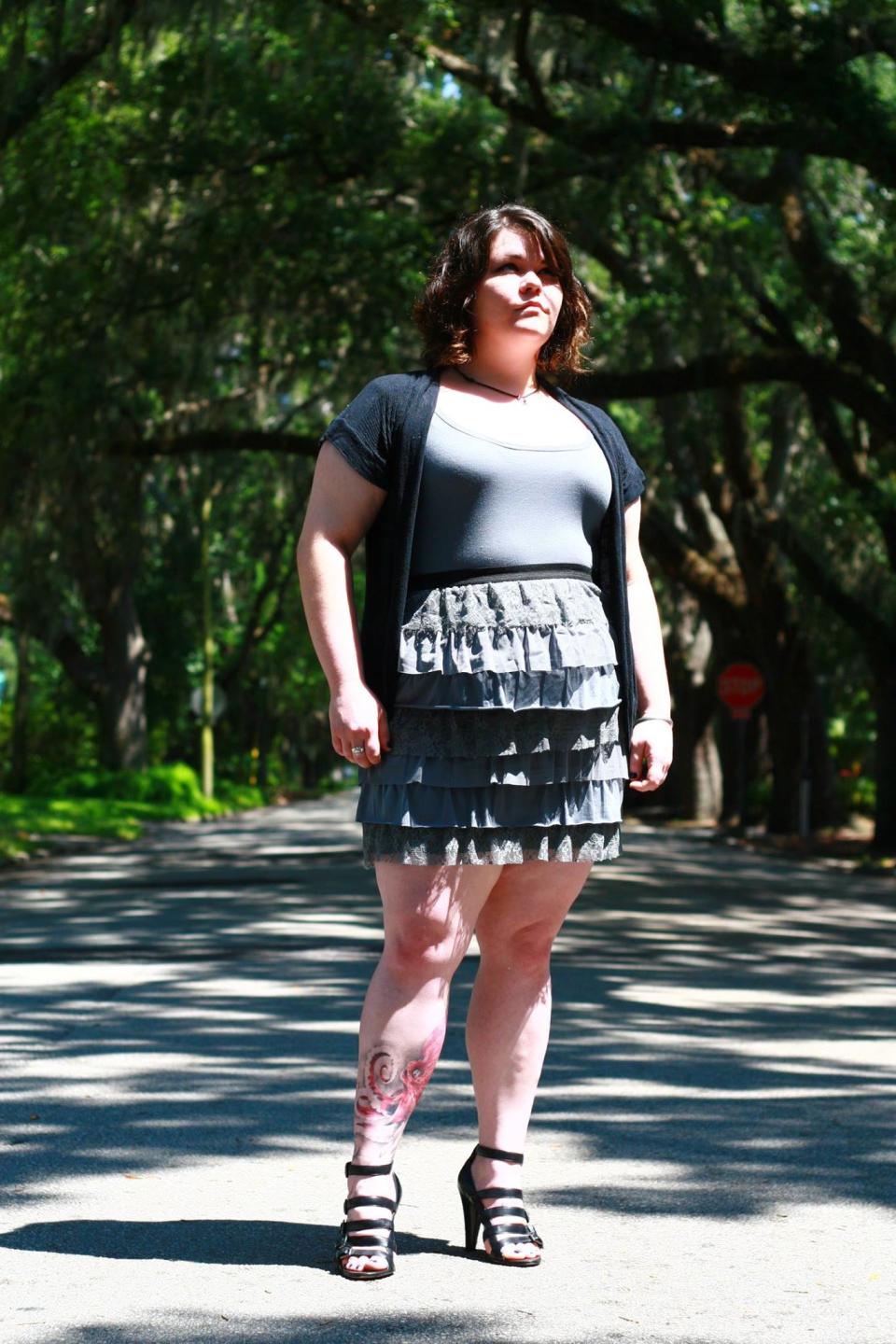The ketogenic diet changed my life — and helped me lose 70 pounds

“I’ve tried a lot of diets, but I’ve never seen that before.” As I peeled the gooey mess of cheese off a slice of pizza and popped it in my mouth, I couldn’t blame my friend for his confusion. Weight-loss hopefuls are more commonly seen dabbing oil off their pizza than skinning it; eating the toppings and leaving behind wedges of lumpy, naked dough.
It wasn’t the first time my dietary habits had drawn glances, and I was well prepared for the monologue I felt required to give next — the nutshell of information that described the ketogenic diet I was on, or “keto” for short. Here’s the long and short of it: By dramatically reducing your intake of carbohydrates, you force your body to burn fat for fuel, which can speed up weigh loss, not to mention still enable you to blithely chow down on typical diet no-noes like mozzarella and pepperoni.
I’d first learned about keto back in 2011 on the keto reddit discussion forum — admittedly, not the most scientifically rigorous place to turn for diet help. But after delving into some of the source material linked by other users (much of which was published in peer-reviewed medical journals), I decided to give it a try. It made sense to me in theory, and it promised a way to lose weight while still feeling satisfied. Sure enough, I quickly dropped the 20 stubborn pounds that weren’t budging with calorie counting alone.

Fast forward a few years and my pizza particularities are no longer quite so foreign. Keto has become decidedly cool, even if somewhat controversial. Celebrities like Halle Berry, Kim Kardashian, and even Mick Jagger have been known to follow the guidelines
While keto might not work for everyone, it’s certainly been an important tool for me over the seven years since I began my weight-loss journey. Don’t get me wrong — it wasn’t only keto that helped me achieve and maintain my 70-pound weight loss, which was the result of a monumental and lifelong set of efforts that ran the gamut from Weight Watchers to CrossFit. While I still limit my carbohydrates today, I don’t maintain ketosis long term.

That said, I’ve repeatedly returned to low-carb, high-fat dieting to help break through plateaus along my journey to weigh loss. Learning that sugar, rather than fat, might be the primary dietary bad guy changed my core eating patterns forever. Low-carb living even helped alleviate some of my polycystic ovary symptoms, restoring and regulating my previously absent periods.
Now that keto’s trendy, there are a lot of misconceptions circulating about it — misconceptions that could foil the efforts of those curious to try the diet.
For complete clarity, I’m not a medical expert, nor am I a dietitian. I’m just someone who has been familiar with the keto diet for the better part of a decade. Here’s what I’ve learned and what you should know before you trash your rice and bulk-buy butter.
1. There’s more to keto than simply ditching carbohydrates.
If you truly want to eat keto, taking a pass on the dinner rolls or swapping your baked potato for broccoli isn’t going to cut it.
A strict ketogenic diet requires a very precise breakdown of macronutrients: Dieters consume 5 to 10 percent of their daily calories from carbohydrates, 15 to 30 percent from protein, and the rest — as much as 80 percent — from fat.
That delicate balance requires vigilance even when it comes to “clean” foods. For instance, almost every single Panera Bread salad would meet or exceed your entire carb allotment (approximately 25 net grams) in one fell swoop; a single serving of baby carrots represents almost a quarter of your acceptable daily intake.
In short, a ketogenic diet can be difficult to maintain, especially in social situations (see: skinning pizza).
2. Keto’s not for everybody.
There’s a lot to love about ketogenic eating, from increased satiety during weight loss to its reported success in treating diseases like diabetes and epilepsy — which is actually what the diet was designed for in the first place.
But true keto is extremely restrictive, requiring constant attention to every morsel you put in your mouth. It can be time-consuming and expensive, and if you’re very active, you may find a lack of carbohydrates tanks your energy levels, at least until you’re fully fat-adapted — and several weeks of iffy performance isn’t always a viable option for an athlete. In fact, lack of sustainability is one of the main reasons nutritionists trashed it in the latest annual diet rankings.
Fortunately, however, it’s not the only effective diet option out there. Less-intense low carb plans have also been shown to benefit their followers, as have diets on the opposite end of the macronutrient spectrum, like DASH.
Bottom line: You have to find the lifestyle that works for you, even if it’s not the one everybody’s talking about.
3. No, you can’t subsist solely on bacon.
One of the biggest selling points of keto is that it allows you to eat high-fat (read: delicious) foods with relative impunity. Steak, cheese, eggs, sausage, full-fat mayo, and ranch dressing — all of it’s allowed on keto.
But that doesn’t nullify other health considerations; the jury’s still out on concerns about saturated fat, or bacon’s heartbreaking connection with colorectal cancer — to say nothing of the fact that an all-sausage diet is likely to leave you feeling downright lousy.
Even when you’re eating keto, you’ve still got to eat your veggies. But, hey, it’s not so bad — one of the best sources of healthy, keto-friendly fat is avocado!
4. You can totally still eat pizza and cookies and cake.
Seriously, no matter what your favorite comfort food may be, the keto community has come up with a low-carb, high-fat version of it, from pad thai to pizza to pumpkin bread. Chocoholic? You can find recipes for everything from Nutella fudge to chocolate truffle cheesecake.
You might have to do some digging for the ingredients (both in the store and in your wallet), but you don’t have to give up any of your favorite indulgences.
5. Cravings will stop.
Although I’ve since transitioned to a less-restrictive low-carb plan, I do thank keto for one of my most important and lasting dietary changes: I no longer eat — or, more important, crave — wheat flour or sugar. Period.
No bread, no cakes, no cookies, and no, not even “natural” sugar like honey or dried fruit.
As someone who used to routinely put away not pints but half-gallons of ice cream, I know that sounds insane. But after several weeks of eating keto, I suddenly found my cravings for those comfort foods vanished. The few times I did go back to them, they weren’t anywhere near as good as I’d remembered, plus they made me feel sick and sluggish.
Other ketoers I’ve talked to report similar findings, as well as a sudden sensitivity to the natural sweetness most of us miss in foods like carrots and squash. It’s surprising but true — you can reboot a lifetime of bad eating simply by focusing on fresh, natural, simple meals for a month or two.
6. It’s still possible to gain weight on keto.
High-fat, low-carb dieting can certainly make weight loss easier; you’ll be less hungry and you may even improve your metabolism.
But no diet is magic. It’s still possible to overeat keto-friendly foods, and anything can cause weight gain if you eat too much of it.
In other words, just because you’re fat-adapted doesn’t mean you can munch hunks of Manchego and Gouda like apples and still expect to lose weight. Trust me. I’ve tried.
7. Even when you meet your goal weight, life won’t be perfect.
This isn’t keto-specific advice, but it’s important.
It’s easy to get caught up in the idea of a goal weight, to tell ourselves that we’ll be happier or more fulfilled when we see a certain number on our scale or clothing tag.
But as someone who’s achieved that golden number, I tell you honestly: Losing weight will not fix you. It can improve your health and confidence, decrease your dress size, and foster physical strength, but it won’t transform you into the 2.0 version of yourself that you’re imagining.
Life and its many challenges will still be waiting for you when you step off the scale, and Thinner You won’t magically have all the answers.
So: Eat well, move often, and find a sustainable diet that’s compatible with your happiness.
After all, happiness and health are the whole point.
Read more from Yahoo Lifestyle:
Parents are letting kids dye their hair younger and younger. Is this a good thing?
Helen Mirren defies her 72 years to pose topless for cancer charity campaign
Follow us on Instagram, Facebook, and Twitter for nonstop inspiration delivered fresh to your feed, every day.

